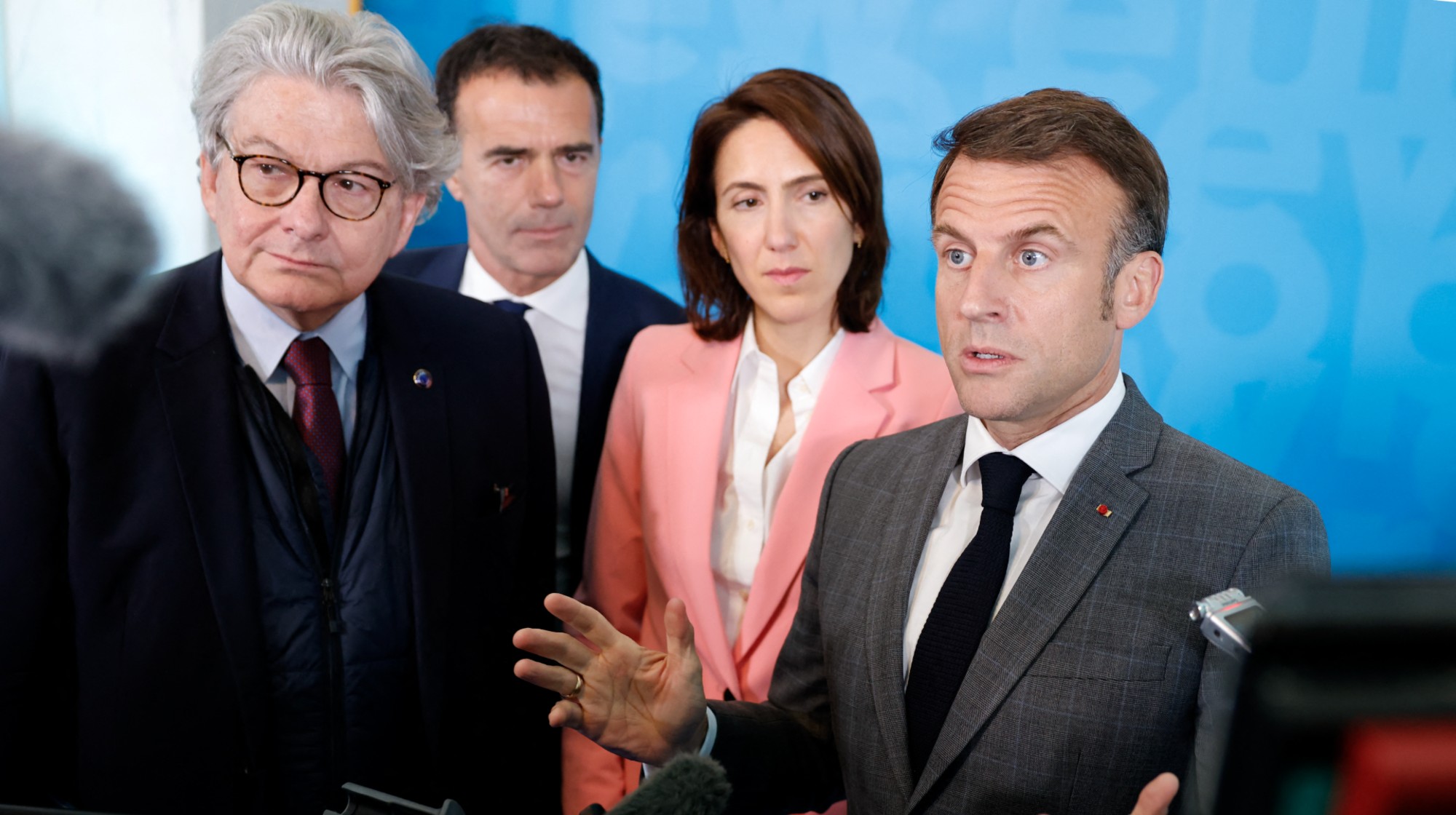Why can't America's omnipotent spook brigade safeguard the election?
If we've learned one thing from all the hacks and leaks, it's this: America's most expensive spies can barely tie their shoes


It's perhaps fitting that the weirdest election in American history will end under a deluge of bizarre stories and conspiracy allegations.
First there was FBI director James Comey's announcement last week that he was doing... something, it's still not clear what, with the investigation into Hillary Clinton's emails, except maybe they weren't even Clinton's emails at all. An immediate hysterical media feeding frenzy commenced, and Clinton's margin in the polls fell substantially. Then it came out that Comey had not mentioned possible evidence that Russian spies were behind the many hacks of Democratic data — for fear of appearing partisan.
Then on Monday evening, a slew of Trump stories dropped. A Slate article suggested that a Trump-controlled server was communicating with Russian intelligence — except, hang on, computer experts poked some big holes in the evidence. Then some ex-spy told Mother Jones that Trump himself might actually be a Russian agent — except, hang on, The New York Times says the FBI examined this case and doesn't buy it. However, the FBI is investigating former Trump campaign manager Paul Manafort's ties to Russia. The Times topped it all off with a report detailing Trump's use of a sketchy tax avoidance tactic that his own lawyers told him would not pass an IRS audit.
The Week
Escape your echo chamber. Get the facts behind the news, plus analysis from multiple perspectives.

Sign up for The Week's Free Newsletters
From our morning news briefing to a weekly Good News Newsletter, get the best of The Week delivered directly to your inbox.
From our morning news briefing to a weekly Good News Newsletter, get the best of The Week delivered directly to your inbox.
It's almost impossible to know how to parse all this garbage. But one thing is for sure: The American deep state — the complicated collection of security, intelligence, and law enforcement agencies — has not acquitted itself well this election. The supposedly omnipotent spook brigade has not been able to defend critical U.S. data sources from hacks, and has not been able to convincingly finger the culprits. Instead they're spending the last few days of the election flailing around like a horned-up elephant seal.
So: the hack of Democratic Party emails. While I am not convinced by various allegations that Trump is actually in league with the Russians, the evidence that these hacks were carried out by somebody associated with Russian intelligence is pretty strong. They got both the DNC and John Podesta, the former with an actual hack, and the latter with a phishing scam that fooled him. Both have Russian fingerprints all over them.
One would think that security agencies are supposed to protect the integrity of the communications of top government officials. No doubt there are many bureaucratic rules in the way. But some of these agencies committed spectacular crimes, lied about it, and got away with it, supposedly to protect American security (more on this below). If there's anything stopping them from protecting American data security, it's not rules or laws of any kind.
Of course, data security is tough, especially given that the weak link is often elderly or tech-naive officials' ability to detect fraudulent requests for passwords and such. But this brings me to the really baffling aspect of this story — the deep state's inability to clearly articulate responsibility for the hacks.
A free daily email with the biggest news stories of the day – and the best features from TheWeek.com
The fact that the Russians were behind the DNC hack was obvious by July. But it wasn't until October that the government officially accused Russian intelligence of attempting to meddle in the election. Various intelligence officials did try to make the connection before, but they had virtually no success pushing it into the front rank of media coverage. It was and is remarkable — one of the greatest acts of political sabotage in American history, and it was a third- or fourth-tier story at best.
Hillary Clinton attempted to make the connection personally in the final debate, referencing the judgment of intelligence officials. But this too failed, for a variety of reasons. One was it was an obvious dodge from a question about the substance of one of the leaked emails; another was that Trump openly scoffed at the assertion, thus motivating partisan Republicans to dismiss it as well.
But perhaps the most important underlying factor is that Trump's scoffing was, on its face, all too plausible. "She has no idea whether's it's Russia, China, or anybody else," he said. "And our country has no idea."
If there are two words to describe the American security apparatus over the last decade and a half, they would be "incompetent" and "duplicitous." All those incredibly expensive security agencies failed to prevent 9/11, failed to see that Saddam Hussein had no WMD program, and colluded in Bush's highly illegal (and completely ineffective) torture program. They lied constantly about that program, as well as dragnet surveillance. And when Congress attempted a simple descriptive investigation of that torture, they lied to and spied on their overseeing committee. It is any wonder a great many citizens instinctively discount anything they say?
Now, instead of doing what seems obvious — getting together all the deep state grandees, and soberly describing what has happened in a clear and honest way — they've either given up, or are flailing around.
The FBI in particular seems completely off the chain. Aside from Comey's batty intervention into the election, a minor FBI Twitter account has been tweeting redacted files about both Trump and Clinton for the past couple days one week before the election — including one into a closed investigation into Bill Clinton's pardon of Marc Rich, which quickly went viral. God only knows why.
On Oct. 21 the largest denial-of-service cyberattack in history disabled websites across the United States. Experts speculate that somebody might try the same trick on election day to try to prevent people from looking up the location of their polling place and disrupt the election. Whether they do or not, it's clear that American security apparatus will probably be powerless to stop them.
Ryan Cooper is a national correspondent at TheWeek.com. His work has appeared in the Washington Monthly, The New Republic, and the Washington Post.
-
 ‘Care fractures after birth’
‘Care fractures after birth’instant opinion Opinion, comment and editorials of the day
-
 Shots fired in the US-EU war over digital censorship
Shots fired in the US-EU war over digital censorshipIN THE SPOTLIGHT The Trump administration risks opening a dangerous new front in the battle of real-world consequences for online action
-
 What will the US economy look like in 2026?
What will the US economy look like in 2026?Today’s Big Question Wall Street is bullish, but uncertain
-
 Bari Weiss’ ‘60 Minutes’ scandal is about more than one report
Bari Weiss’ ‘60 Minutes’ scandal is about more than one reportIN THE SPOTLIGHT By blocking an approved segment on a controversial prison holding US deportees in El Salvador, the editor-in-chief of CBS News has become the main story
-
 Has Zohran Mamdani shown the Democrats how to win again?
Has Zohran Mamdani shown the Democrats how to win again?Today’s Big Question New York City mayoral election touted as victory for left-wing populists but moderate centrist wins elsewhere present more complex path for Democratic Party
-
 Millions turn out for anti-Trump ‘No Kings’ rallies
Millions turn out for anti-Trump ‘No Kings’ ralliesSpeed Read An estimated 7 million people participated, 2 million more than at the first ‘No Kings’ protest in June
-
 Ghislaine Maxwell: angling for a Trump pardon
Ghislaine Maxwell: angling for a Trump pardonTalking Point Convicted sex trafficker's testimony could shed new light on president's links to Jeffrey Epstein
-
 The last words and final moments of 40 presidents
The last words and final moments of 40 presidentsThe Explainer Some are eloquent quotes worthy of the holders of the highest office in the nation, and others... aren't
-
 The JFK files: the truth at last?
The JFK files: the truth at last?In The Spotlight More than 64,000 previously classified documents relating the 1963 assassination of John F. Kennedy have been released by the Trump administration
-
 'Seriously, not literally': how should the world take Donald Trump?
'Seriously, not literally': how should the world take Donald Trump?Today's big question White House rhetoric and reality look likely to become increasingly blurred
-
 Will Trump's 'madman' strategy pay off?
Will Trump's 'madman' strategy pay off?Today's Big Question Incoming US president likes to seem unpredictable but, this time round, world leaders could be wise to his playbook
